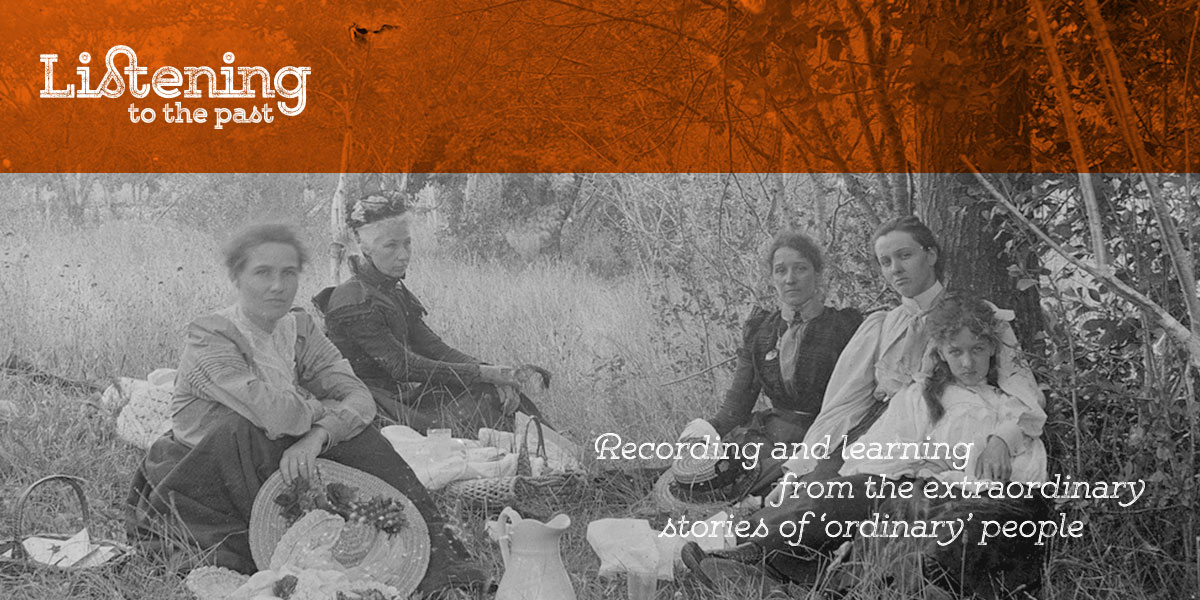Here are the final five reasons to record and use oral history interviews.
You can read the first five reasons here, and the second five reasons here.
Oral history is an excellent way to:
11. Create a record for your descendants
Imagine that whilst doing research on your family tree you came across an interview with one of your ancestors who lived in the 18th century. Wouldn’t that be wonderful! It is obviously impossible. However, we have the opportunity to record interviews with living relatives and create a record for which our descendants will be grateful.

12. Combat social isolation and bring communities together
Getting community members involved in learning how to do oral history helps both interviewee and interviewer connect with others in that community. Oral history projects that cross generations, with school children interviewing older residents for example, has benefits for everyone involved.
13. Provide a sense of self-worth
Having one’s story recorded provides the interviewee with a sense of self-worth and contribution, and knowledge that their story will not be lost. Oral history has also been undertaken very effectively with palliative care patients (for example this project in Sheffield, UK).
14. Create a record of dialects and interesting expressions
The way we speak varies from country to country, and sometimes within countries. Accents vary, and the words used may be specific to a region or occupation. Oral history can be very useful to linguists studying these differences across place and time.
The way we speak is different to the way we write. We are more likely to use colloquial expressions when we speak than when we write, so recording the spoken word is an excellent way to collect these expressions. And those expressions change with time. Popular expressions used by young people today are different to those used by young people one or more generations ago.
15. Provide insight into a place’s history to inform town planning
Oral history interviews have been used in places undergoing rapid change – often from former industrial sites to redeveloped mixed commercial, educational and residential spaces – to help inform town planning and ensure the new development builds on the past, rather than ignoring it.

At Tonsley in South Australia, a former farm from 1839 to 1955 became a car manufacturing plant from 1955 to 2008, but is being redeveloped as an innovation district and village. Oral history interviews with former workers at the car factory and with a member of the farming family helped to place the new development in context, and offer ways in which the heritage can be incorporated in the newly developed precincts.

When I started planning this post, I was going to include my five favourite reasons for using oral history. But the list kept growing! I decided to stop at fifteen. However, there are many more than fifteen reasons to use oral history. How have you found oral history useful? Please write about it in the comments below.
